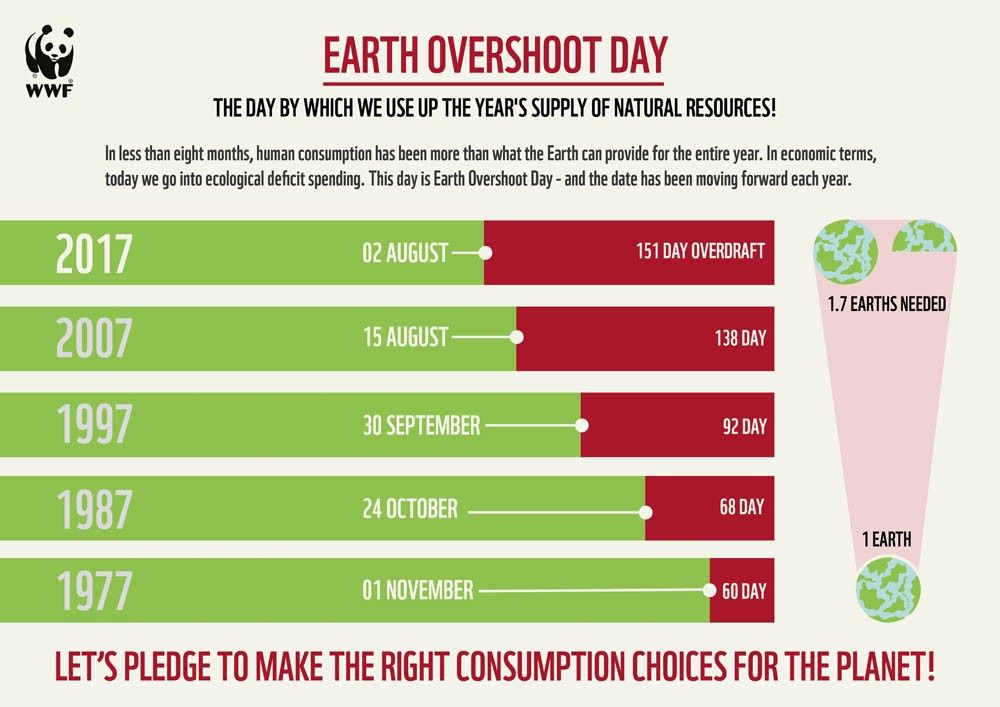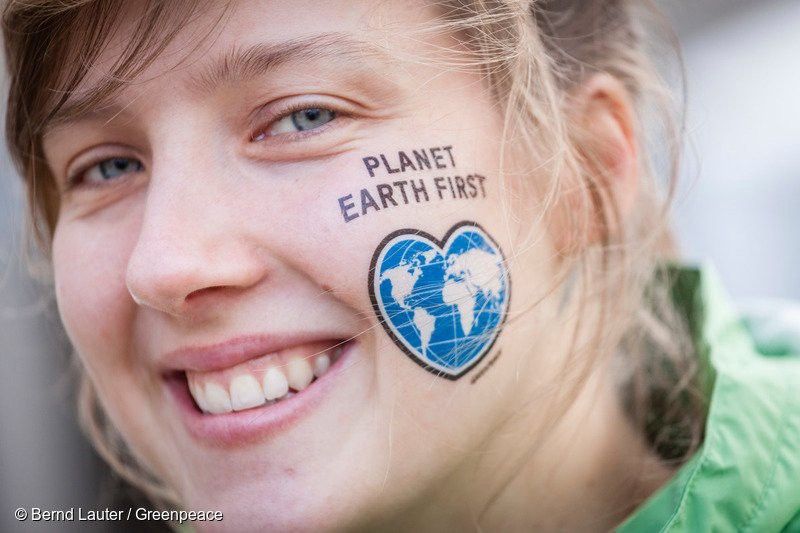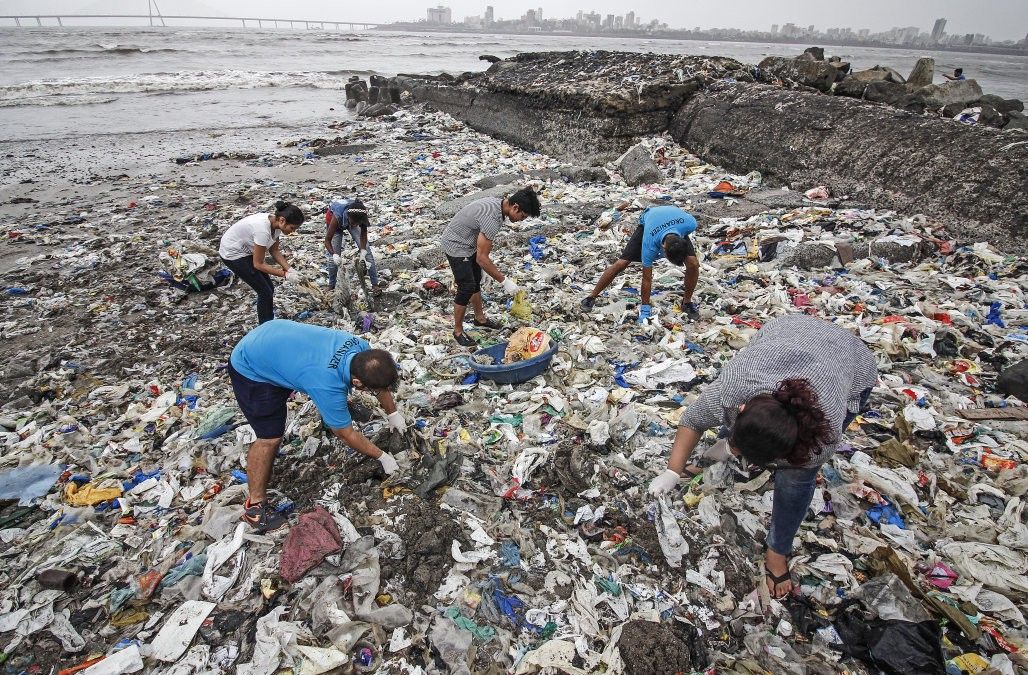I have been following the steady progression of Earth Overshoot Day — the day when humanity’s use of ecological resources and reliance on ecological services in a given year exceeds what Earth can regenerate in that year.
When my book ‘Designing Regenerative Cultures’ came out in 2016 the day fell on August 8th and the year before on August 13th.
In 2018 humanity collectively reached Overshoot Day on August 1st.
To make the vision of co-creating regenerative cultures and a world where the whole community of life can thrive a reality, the people of Earth will have to come together with the shared mission of ‘rolling back Earth Overshoot Day’. This will unleash unprecedented creativity in making the 21st Century the ‘Century of Earth Regeneration’ by co-creating diverse regenerative cultures everywhere.
The graphic below by the Global Footprint Network shows the way that Earth Overshoot Day continues to be earlier and earlier every year, since on December 23rd 1970 humanity — as a whole and by no means everyone — started to live on resources stolen from future generations.
In other words, this the day that we started to erode the capital of the inheritance of life, rather than thriving together by living off its interest and staying within a resource use that is below the amount the Earth is able to regenerate every year.
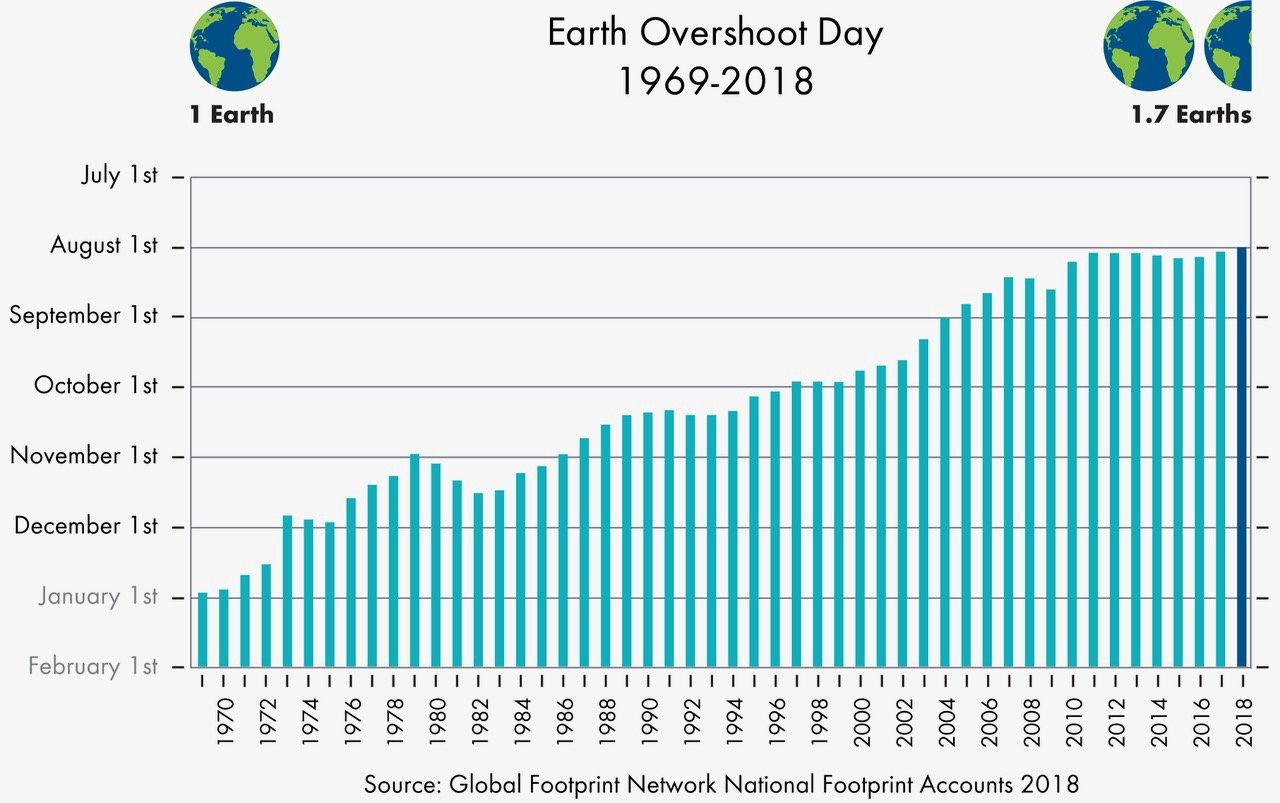
Another way of looking at this data is to say that currently humanity is using resources and generating waste in such excess that we are living off 1.7 planets. The snag being that this is clearly not something that can continue.The longer we do so, the less capacity for bio-productivity will remain, as we erode planetary life support systems even further.
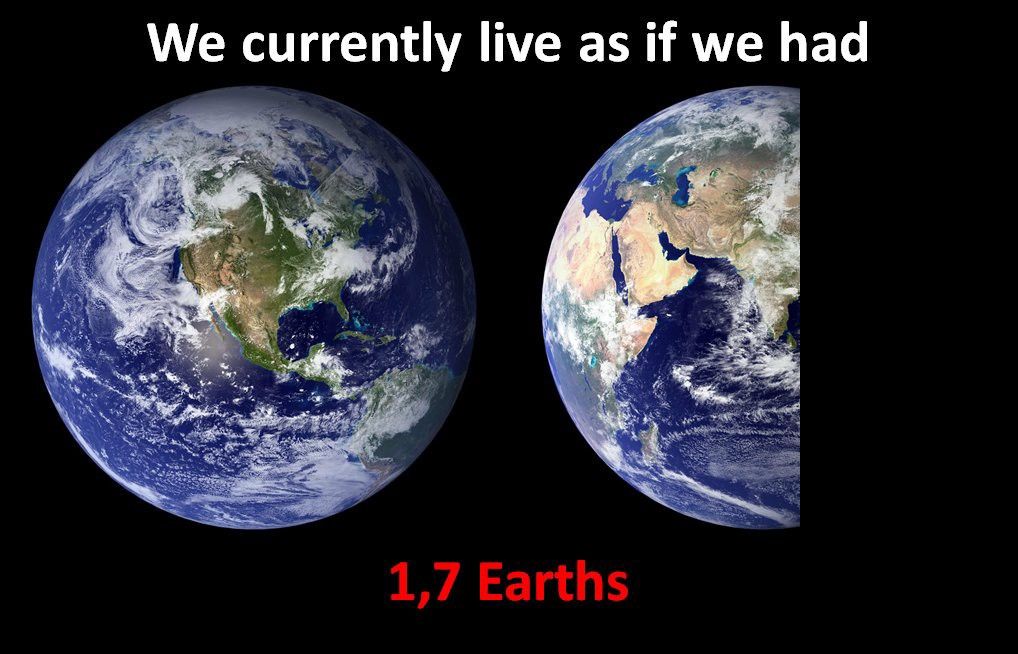
Another important aspect of all this is that when we speak of ‘humanity as a whole’ there is a tendency to give everyone the same share of the blame or the guilt for this irresponsible behaviour that is effectively stealing from our children and children’s children.
By no means do all human beings alive today share the same complicity in this robbery from the community of life.
The tough fact to swallow is that you and me — yes even those conscious enough to bother writing or reading such an article — are likely to be much more to blame for this state of affairs than many people in the Global South who consume far less resources and produce far less waste.
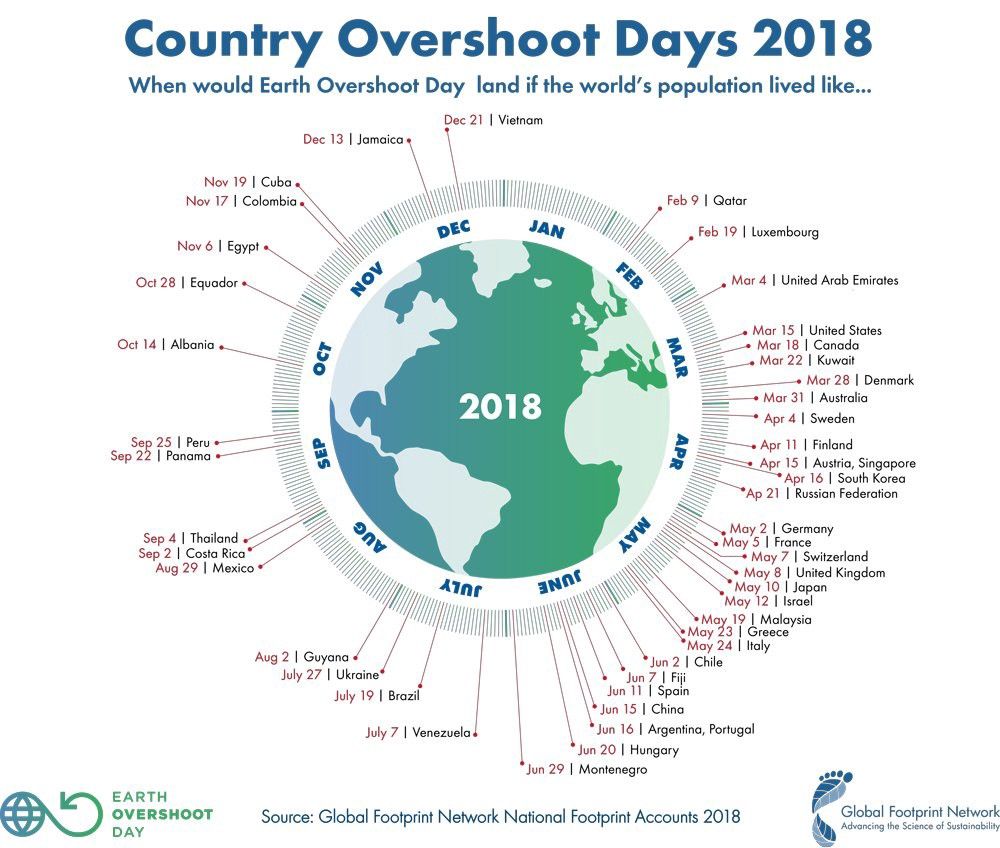
Take a closer look at the ‘Overshoot Day’ of individual countries. This measure indicates when the world would reach overshoot if everyone on planet Earth consumed and generated waste like the average citizen of that particular country.
To name some examples, if we all lived like the people of Qatar, we would reach Earth Overshoot Day by the 9th of February, rather than August 1st. If you are from the USA, your country’s overshoot day is March 4th. In Germany it is May 2nd, in the UK it is May 8th, in Spain June 11th, in China June 15th, and in Brazil July 19th.
If, on the other hand, all of humanity would consume resources and produce waste like the average person in Vietnam, Egypt, or Costa Rica, we would reach Earth Overshoot Day a lot later (December 21st, November 6th, and September 2nd respectively).
The point being, that some members of the human family are using the Earth’s resources much faster than others — and these people exist in all countries — but in general the Northern industrialized countries tend to be responsible for a much more substantial share of the damage being done.
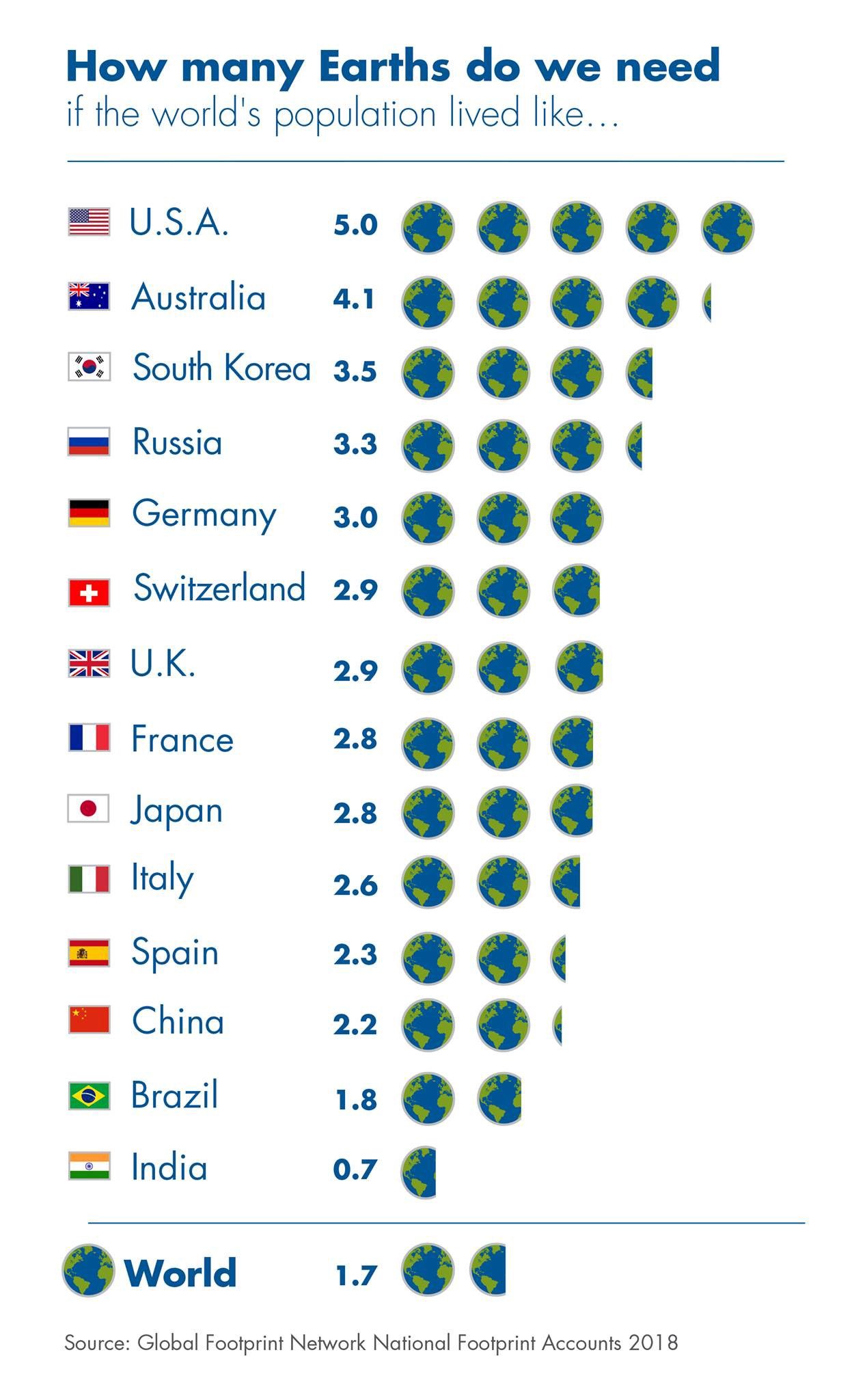
When I lived in the Findhorn Ecovillage the community had just done an Ecological Footprint analysis and was proud to be at about half the UK average at the time. While that showed that drastic reductions in ecological impacts are possible and achievable relatively quickly, the 2.4Gha of the community at the time were still above the global fair share which was at about 1.7Gha.
That is why I am confident in saying that we — me and you — are part of this problem, even if our personal footprint might be a little lower than the national average of the country we are living in, because we are trying to become part of the solutions rather than continuing to contribute to the problems.
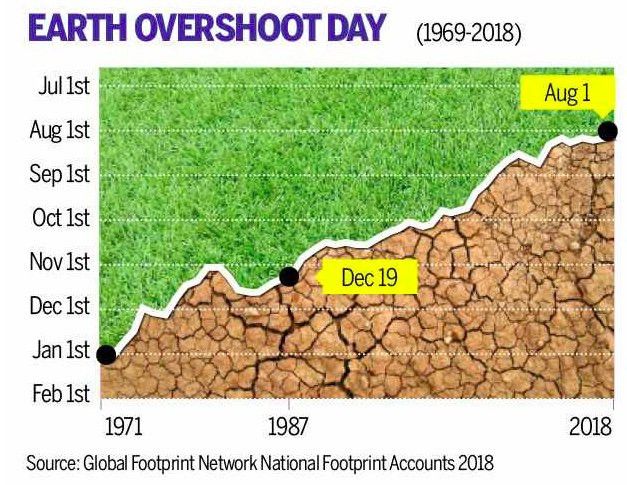
We know that we are facing a series of crises which are likely to converge and get worse during the coming decades. Being hopeful that we can avoid major collapse and catastrophe is increasingly unfounded as the impacts of these crises are already affecting many millons of people’s livelihoods and wellbeing.
Nevertheless, we also know that if we all — humanity as a whole and each one of us in her/his community— came together behind committed local, bioregional, national and global actions to ‘roll back Earth Overshoot Day’ we could reduce the suffering and even turn the corner within this century. Within a generation we can accomplish the shift towards regeneration rather than destruction being the main human impact on Earth.
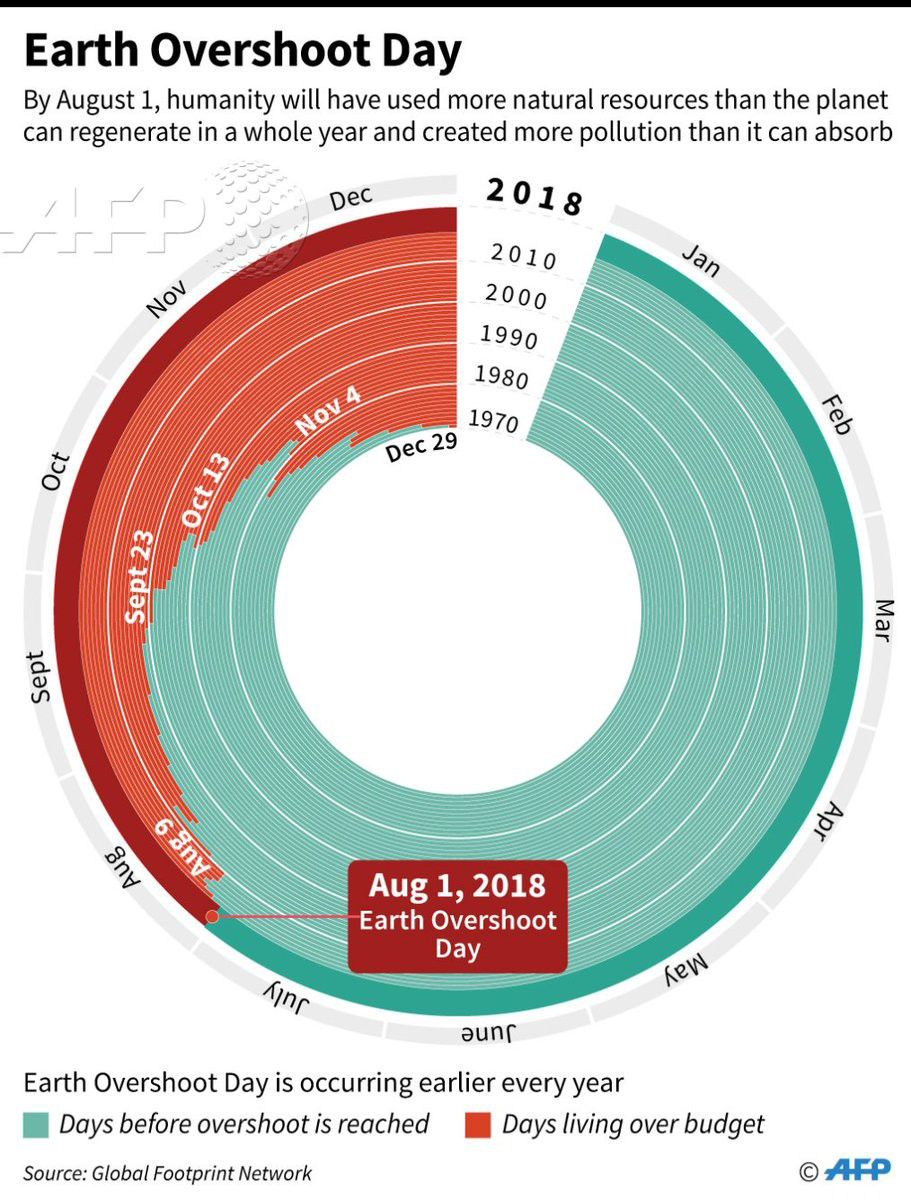
We do not have to resign ourselves to the fact that Earth Overshoot Day is occurring earlier and earlier. We canco-create regenerative cultures everywhere. Place by place and bioregion by bioregion, we can increase soil fertility and the organic carbon in the soil, we can regenerate local water ways and marine ecosystems, we can reforest and reclaim deserts. All of this has been demonstrated in localized projects.
What is still missing is a global movement to #MoveTheDate, roll back Earth Overshoot Day and #EndOvershoot within the 21st Century.
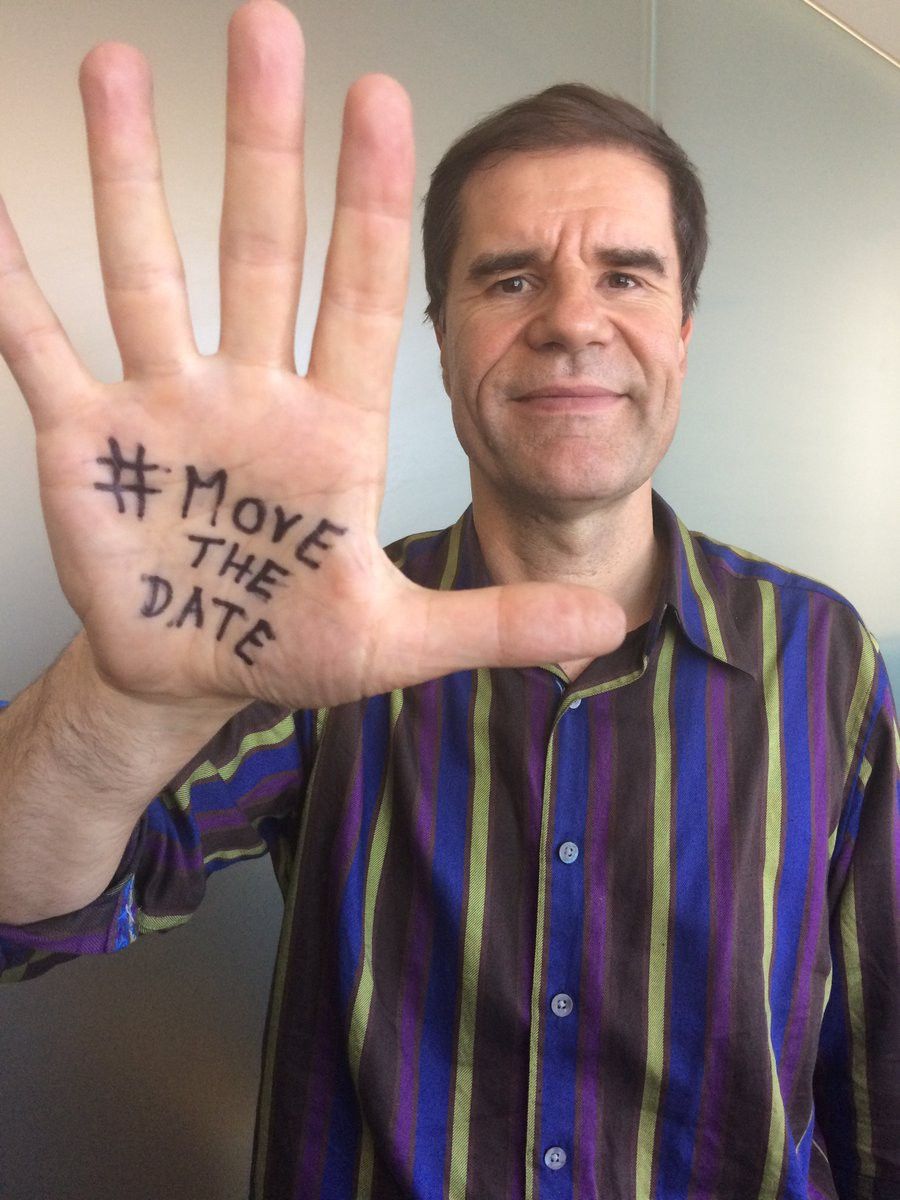
Research by the Global Footprint Network supported by the Barilla Centre for Food and Nutrition shows that by increasing the proportion of cereals, vegetables and fruit in our diets, not eating more than is healthy and avoiding food waste we could roll back Earth Overshoot Day by 38 days (see below).
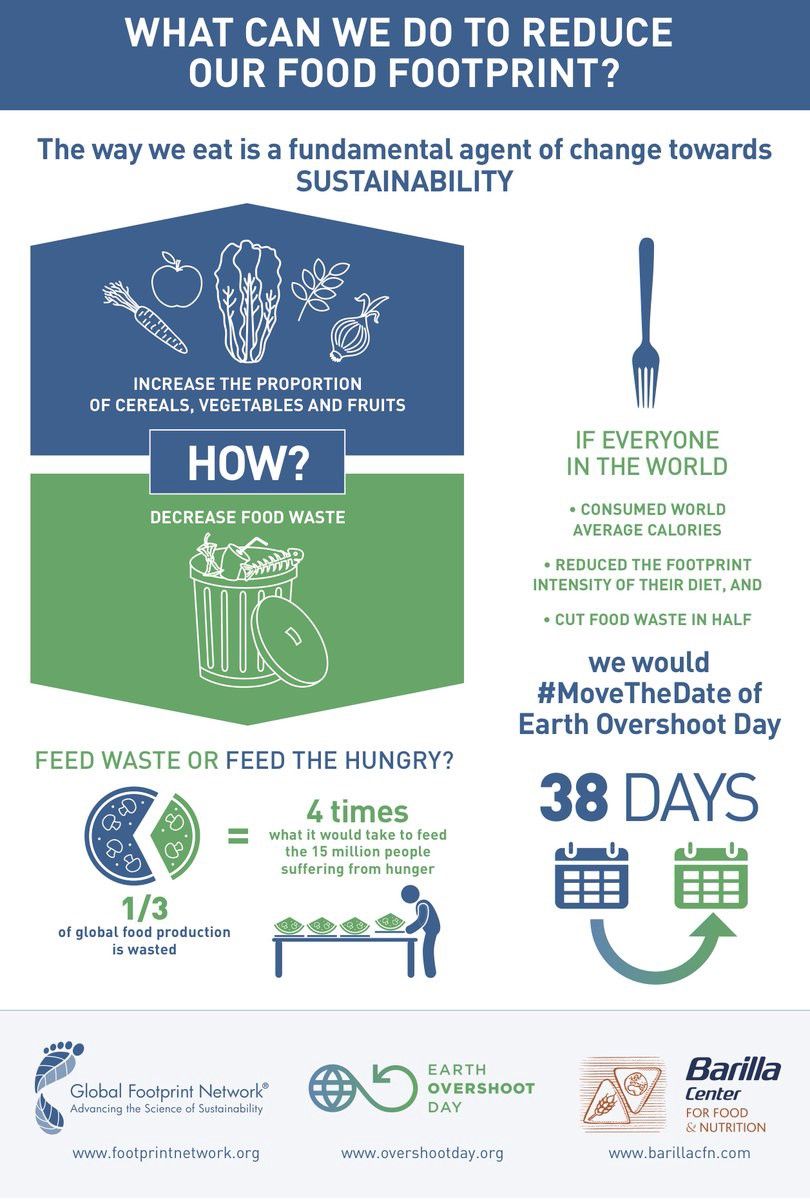
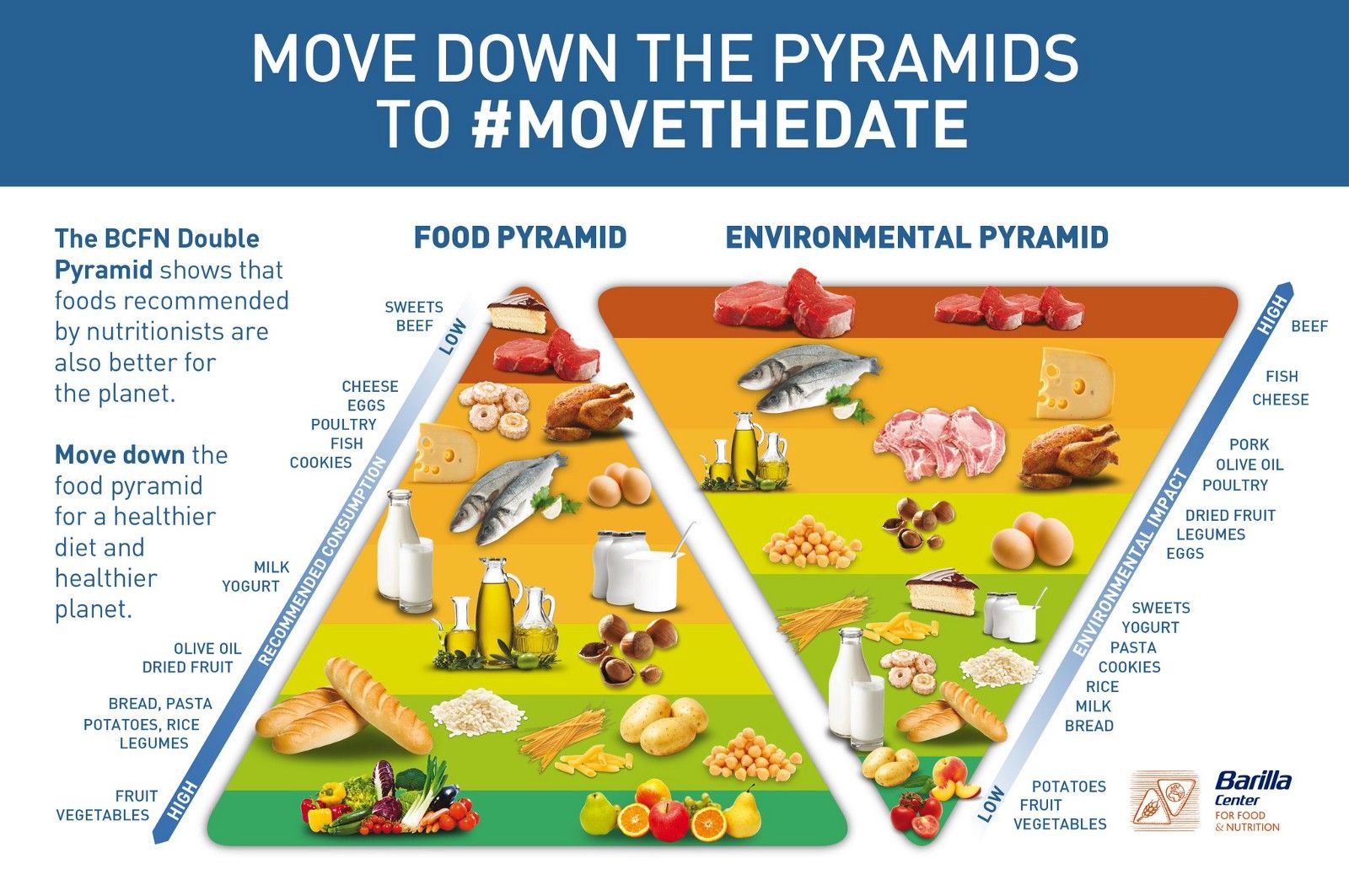
The Global Footprint network offers a whole range of steps you can take to become part of the #MoveTheDate or #EndOvershoot movement:
Start a Population Conversation
Dive into the Date (and measure your own Ecological Footprint)
Use your car less and public transport and bicycle more
Engage your community, city and bioregion
Become and active participant in waste avoidance and recycling
Start an Ecological Footprint Conversation
Get creative and design your own steps to #MoveTheDate
The last point is a reminder that we all need to become not only more ecologically and socially literate, but we also need to become design literate and wake-up to the power of design in shaping and co-creating the kind of world we would want our children’s children to grow up in.
I spent many years working in the field of design education because of this conviction. It has been a major motivation behind my work with Gaia Education, helping to create both online and face to face programmes that do not require an academic background and support people of all ages and background to ‘design for sustainability’ and ‘co-create regenerative cultures’.
My book ‘Designing Regenerative Cultures’ and the over 200 articles I have published on my Medium blog are full of examples, methods, and tools that can help you and your community embark on the important work of our time: #MoveTheDate by co-creating regenerative cultures!
More articles on Earth Overshoot Day:
